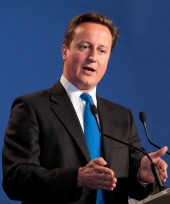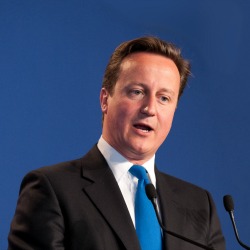In the wake of the Paris shootings, UK Prime Minister David Cameron said on Monday that if he wins the next election, he’ll put an end to communications that can’t be read by security services even with a warrant:
[I]n our country, do we want to allow a means of communication between people which we cannot read?
According to the Independent, Cameron compared messaging apps to letters and phone conversations, both of which can be read by security services in extreme situations, when under a warrant.
 Cameron’s remarks were part of a pledge to revive the much-reviled Data Communications Bill – commonly known as the snoopers’ charter – which was blocked by Liberal Democrat opposition in 2012.
Cameron’s remarks were part of a pledge to revive the much-reviled Data Communications Bill – commonly known as the snoopers’ charter – which was blocked by Liberal Democrat opposition in 2012.
If Cameron’s proposed ban on encrypted communications apps was approved, then it could lead to a wide range of popular chat and social apps getting booted out of the country (how that would be accomplished being another question entirely and one which Cameron didn’t address).
A company that provides true end-to-end encrypted messaging can’t just hand over message content.
Such encryption, which protects both the bad guys plotting terrorist attacks and the rest of us who just want to talk without someone listening, is baked into messaging apps such as iMessage, FaceTime and WhatsApp.
WhatsApp, in fact, just added end-to-end encryption by default in November.
Just in time to be rushed out of Britain!
(Note that some news outlets have wrongly included Snapchat in the list of encrypted messaging apps that could be backdoored or banned if Cameron gets his way. As Snapchat notes in its guidelines for law enforcement, it can, under certain circumstances, fish messages out of its servers and hand over message content in response to a warrant.)
Beyond chat and social apps, an intolerance for encryption could jeopardize a vast array of people who use anonymising services (such as Tor) for legitimate purposes: activists; those researching sensitive topics; people circumventing censorship or warrantless surveillance; whistleblowers; military personnel; the list goes on.
Cameron hasn’t given much detail on his radical notion of a naked internet. Does he really envision stripping away all technologies that the government can’t read? Or just encrypted messaging?
As far as the snoopers’ charter goes, Deputy Prime Minister Nick Clegg told BBC Radio 4’s Today programme that while he supports targeted measures to identify suspected extremists and, if necessary, to examine their communications, the charter goes far beyond that:
This is where the great confusion lies. Of course we should retain the right to steam open envelopes. The snoopers' charter is not the answer to that ... it didn't deal with the issue of when people mean to do us harm.
It wasn't about intercepting communications, it was about storing a record of all your social media activity, every site you've visited, of every individual in this country.
Cameron isn’t the only politician who’s willing to trade privacy in the war against extremists.
Mayor of London Boris Johnson also scoffed at the notion over the weekend, telling Sky News that privacy’s a fair price to pay for safety:
I'm not particularly interested in this civil liberties stuff when it comes to these people's emails and mobile phone conversations. If they are a threat to our society then I want them properly listened to.
What do you think? Is unlimited government surveillance a trade off you’d be willing to make if it could prevent tragedies such as the recent Paris attacks?
Or does it just mean that those the government want to listen to the most would figure out some other way to talk?
Please share your thoughts in the comments section below.
Image of David Cameron courtesy of Frederic Legrand – COMEO / Shutterstock.com.
